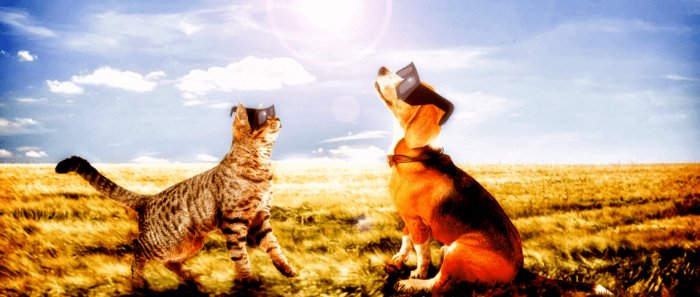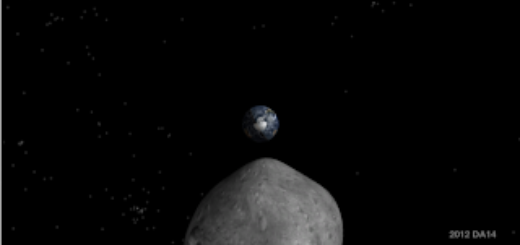Great American Solar Eclipse Will Make Wild Animals And Pets Act Strangely – Scientists Say
As humans look forward to the Great American Eclipse coming on August 21, we should not forget that this event will affect animals.
Scientists say that wild animals as well as our pets will be affected by the total solar eclipse. We can expect some odd behavior from animals during this event.

Animals are confused about the nature of eclipses and it’s a very weird experience for them.
Cats and dogs may not notice the solar eclipse much, but many wild animals may mistake solar eclipses for twilight.
Those who have studied animal behavior during a solar eclipse say they have seen songbirds go quiet, large farm animals lie down, crickets start to chirp and chickens begin to roost.
Many wild animals have been known to treat a total solar eclipse like an abrupt midday night. “The birds behave as if the disappearance of the sun means evening, and the return of the sun means morning — in time-lapse, of course,” Max Planck Institute ornithologist Wolfgang Fiedler tells German news outlet Deutsche Welle.
“Certain stimuli can overrule normal behavior without affecting an animal’s daily physiological rhythms,” said Joanna Chiu, who studies animal circadian clocks at UC Davis. “It is not surprising that the eclipse will temporarily affect animal behavior, but it is unlikely to affect their internal clock or their behavior in the long run.”
Although total solar eclipses are short, they can still interrupt birds’ normal avian daytime behavior.
During a total solar eclipse in June 2001, for example, astronomer Paul Murdin observed how various wildlife reacted at Mana Pools National Park in Zimbabwe. He saw doves and other songbirds act out bedtime routines, briefly going silent before singing when the sun reappeared.
“Egrets, oxpeckers, ibis, trumpeter hornbill and geese stopped feeding and set off for roosts,” he wrote, noting that only some returned to feed after the eclipse. A pod of hippos dispersed into the water during totality, as they do at dusk, but then “showed nervousness for the rest of the afternoon” and took a day to get back to normal.
A sun squirrel stayed in his hole on the eclipse day, Murdin wrote, “apparently having concluded from the eclipse that he had overslept into nightfall.” Bees withdrew to their hive in the late stages of the eclipse, he added, then tried reconnaissance: “Two scout bees left the hive after the eclipse and returned later, but whatever they reported, the swarm of bees did not leave the hive again that afternoon.”
Yet another study in Veracruz, Mexico, found that some orb-weaver spiders will start to dismantle their webs during totality, and then rebuild them when the sun’s face is revealed once again.
According to Russell McLendon, science editor for Mother Nature Network, pets are not as sensitive as wild animals to a solar eclipse, but there are still important things to know about how the solar eclipse could affect dogs and cats, including safety measures responsible owners should take.
A dog’s eyes could be harmed by a solar eclipse, but they’re less likely to look up than we are. (Photo: Waifer X/flickr)
Pets can become fearful during the eclipse. So, remember that your dog or cat could get spooked by solar eclipse-inspired events that involve crowds of people.
If safe precautions are not taken during the eclipse viewing, pets can suffer “eclipse blindness.” Humans should definitely wear eye protection to watch the eclipse.
Pet’s don’t necessarily need glasses, but it wouldn’t hurt. It is possible that some pets could harm their eyes by looking at the eclipse. Cats may be more aloof, but since dogs can follow a human gaze and pointing, it’s conceivable that people looking and pointing at the eclipse might tempt dogs to do the same. Many people do equip their dogs with eclipse glasses.
The best thing is simply not to bring your pets to the solar eclipse!



 Creators of mankind
Creators of mankind Description of “Tall white aliens”
Description of “Tall white aliens” Where they came from?
Where they came from? About hostile civilizations
About hostile civilizations The war for the Earth
The war for the Earth “Tall white aliens” about eternal life
“Tall white aliens” about eternal life Video: “Nordic aliens”
Video: “Nordic aliens” Aliens
Aliens Alien encounters
Alien encounters The aliens base
The aliens base UFO
UFO Technology UFO
Technology UFO Underground civilization
Underground civilization Ancient alien artifacts
Ancient alien artifacts Military and UFO
Military and UFO Mysteries and hypotheses
Mysteries and hypotheses Scientific facts
Scientific facts


















